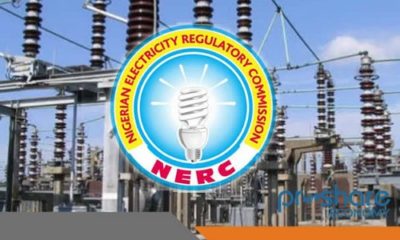Oil
Ogoni Oil spill: SHELL urges Govt to end Pipeline sabotage, Illegal refining

By Yemie ADEOYE
LAGOS– SHELL Petroleum Development Company, SPDC, has warned that a critical portion of the UNEP report which emphasizes on complete stoppage of pipeline vandalism and illegal refining must not be overlooked if a meaningful implementation of the report is to be expected by Nigerians and the world.
Specifically Shell wants the federal Government to take the lead in putting a lasting end to the activities of illegal refiners and pipeline vandals in the Niger-delta as that is the only panacea to a lasting clean up exercise in Ogoni land and around the region.
 This position was made known by the General Manager, External relations of Shell Mr. Igo Welli during an interactive session with a select group of the Nigerian media in Lagos at the weekend.
This position was made known by the General Manager, External relations of Shell Mr. Igo Welli during an interactive session with a select group of the Nigerian media in Lagos at the weekend.
Mr. Welli who went proverbial at an instance opined that no one can mop or clean the kitchen floor successfully while the tap is still running. He went on to narrow this down to the ogoni land clean up by stating that the major cause of the spills, pollution and degradation is the activities of pipeline vandals, Illegal oil refiners and oil thieves.
“These ones do more damage to the environment on a daily basis, and much may not be achieved if we turn a blind eye to these nefarious acts and concentrate on the clean-up, as the very expensive exercise would be short-lived due to the continued illegal activities.
The Shell Image maker, further told newsmen that from the 22 actions directed at it by the UNEP report since it was published Shell and its partners have swung into action to meet these directions and between the time and now 16 of those directives have been met, even as the company continues to work to meet the remaining six.
“In the Period under review SPDC has carried out remediation processes with 470 incidents documented along SPDC JV right of way in Ogoniland, 368 remediated, 32 incidents are at various stages and 70 incidents are currently outstanding out of which 40 are in Bodo.
We have also completed the physical verification of assets in Ogoniland covering delivery and flowlines, manifolds, flow stations, compressor stations, gas plants and burrow pits.
Water projects
SPDC JV funded a regional water supply project at Eleme which provides access to potable water for about 30,000 indigenes across five clans from 103 outlets. This is being expanded by the Rivers State Government to include more outlets.
Health outreach
On the health aspect we conducted primary healthcare outreach to the communities through SPDC’s Health-In-Motion programme; about 35,000 adults and 15,000 children benefitted from the outreach.
Alternative livelihood
We executed alternative livelihood programme (LiveWIRE) for 105 Ogoni youths; provided start-up grants to the trainees most of whom have started businesses.
Monitoring of the LiveWIRE beneficiaries is ongoing.
Grassroots campaign
We championed grassroots environmental campaign in partnership with the Rivers State Ministry of Environment, NOSDRA, and NGOs to deepen awareness on the ills of illegal bunkering and oil theft.12 town-hall sessions were held across the four local government areas yearly. About 11,000 participants recorded from 2014 to date.
“SPDC welcomes the leadership shown by President Buhari in setting up governance structures for implementation of the UNEP report. We are greatly encouraged by the positive and constructive response from representatives of the community, Niger Delta NGOs and civil society. This is an important step forward and SPDC is determined to play its part in maintaining the momentum.
“However, as the UNEP report stated, treating the problem of environmental contamination within Ogoniland merely as a technical clean-up exercise will ultimately lead to failure. Ensuring long-term sustainability is a much bigger challenge – one that will require coordinated and collaborative action from all stakeholders.
“This must include putting an end to the widespread pipeline sabotage, crude oil theft and illegal refining that are the main causes of environmental damage in Ogoniland and the wider Niger Delta today. Shell Companies in Nigeria will continue to be at the forefront engaging interested stakeholders and seeking sustainable innovative ways to resolve the problem.” He enthused.
Oil
NNPC Discovers Over 4,800 Illegal Pipeline Connections

The Nigerian National Petroleum Company (NNPC) Limited has revealed the detection of more than 4,800 unauthorized connections on oil pipelines within the country, painting a troubling image of the nation’s primary source of revenue.
Mele Kyari, the Group Chief Executive Officer of NNPC Ltd, communicated this information to the Senate Committee on Appropriations last Friday.
He said, “We have over 4,800 illegal connections on our pipelines. That means in some lines, within 100 kilometres of pipelines, you have as much as 300 insertions.
“Therefore, even when you produce the oil, you cannot deliver them at the required pressure and therefore the volume will also be less.”
As per the NNPC Ltd chief, individuals from various regions enter the Niger Delta, inserting unauthorized connections on pipelines in Nigeria’s oil-producing area.
This recent revelation follows a prior discovery of 295 illegal connections to the pipelines by the firm a year ago, underscoring the escalating issue of crude oil theft in Nigeria.
Two years earlier, Kyari had highlighted the country’s daily loss of 200,000 barrels of oil, amounting to $13 million due to theft and vandalism.
He further stated “We have two sets of losses, one coming from our products and the other coming from crude oil. In terms of crude losses, it is still going on. On the average, we are losing 200,000 barrels of crude every day.”
After the discovery, Nigeria’s security forces pledged to enhance security around the country’s pipelines.
To bolster this, the Federal Government granted a multi-billion naira pipelines surveillance contract to Tantita Security Services, headed by former militant leader Government Ekpemepulo, also known as Tompolo.
Despite facing criticism for this decision, Senator Heineken Lokpobiri, the Minister of State for Petroleum, remains convinced that it was the appropriate course of action.
In August, following a tour of oil facilities in the Niger Delta, Senator Heineken Lokpobiri expressed gratitude to Tantita, commissioned by NNPC Ltd, for their ongoing work.
He also hinted at plans for further extensive endeavors in the future.
In 2021, after extensive debate and delays, the Petroleum Industry Bill was finally passed to attract increased foreign investment into the oil sector through amendments to regulations, royalties, and taxes.
Oil
Dangote Refinery Set To Begin Fuel Production With First Crude Arrival

Nigeria’s colossal $19 billion Dangote Refinery, after encountering several setbacks, is on the verge of kickstarting fuel production.
This achievement is heralded by the arrival of the first crude shipment, transported by the OTIS tanker carrying 950,000 barrels of Nigeria’s Agbami crude.
S&P Global, citing industry sources and tanker tracking data on spglobal.com, reported the tanker’s departure on December 6, en route to Lekki, the nearest land port to Dangote’s offshore crude receiving terminal.
Scheduled to reach its destination around 8 PM on December 7, the arrival of this shipment signifies the commencement of crude supplies for the refinery’s operations.
Chartered by the state-owned Nigerian National Petroleum Company (NNPC), the Suezmax tanker is an emblem of the initial crude supply to Dangote’s cutting-edge refinery, as disclosed by a West African oil trader familiar with the matter in the S&P report.
Even though the refinery was officially completed in May, the absence of domestic crude feedstock had hindered oil product manufacturing.
To address this, the NNPC, holding a 20% stake in the refinery, struck an agreement to provide 6 million barrels of crude oil as feedstock to the Dangote refinery in December.
This move aims to jumpstart operations and overcome the previous impediments.
Agbami, operated by Chevron, holds a prominent position among Nigeria’s major deepwater developments, producing around 100,000 barrels per day in the central Niger Delta.
Known for its light sweet crude qualities, with a specific gravity of 47.9 API and a low sulfur content of 0.04%, Agbami produces substantial amounts of naphtha and kerosene.
NNPC has chartered additional shipments from different Nigerian offshore fields to the refinery, marking the start of a sequence of planned crude supplies for the month, as mentioned by the oil trader.
Located on the outskirts of Lagos, Nigeria’s commercial hub, the Dangote Refinery encountered repeated delays since its 2013 announcement, despite significant installation progress in 2019.
The refinery, designed to handle multiple crudes simultaneously, targets three Nigerian crude grades—Escravos, Bonny Light, and Forcados. When operating at full capacity, it aims to produce 327,000 barrels per day (b/d) of gasoline, 244,000 b/d of gasoil/diesel, 56,000 b/d of jet fuel/kerosene, and 290,000 metric tons per year of propane/LPG.
Dangote’s operations starting signify Nigeria’s hopes to lessen its reliance on gasoline imports, addressing the deficiencies of its existing refineries undergoing repairs. This shift is poised to reshape Nigeria’s oil industry, potentially leading to gasoline self-sufficiency by the 2040s.
Dangote officials anticipate an initial output of 370,000 barrels per day (b/d), emphasizing jet fuel and diesel production.
Industry analysts, however, project the refinery to reach its full operational capacity by mid-2025, although potential delays remain a looming concern.
Oil
NNPCL Sets Dec 2024 Terminal Date For Fuel Importation

The Nigerian National Petroleum Company Limited (NNPCL) has announced intentions to cease importing refined petroleum products by December 2024, anticipating full operational functionality for all national refineries by that time.
Group CEO, NNPC Ltd, Mele Kyari, shared this at a meeting with Speaker Tajudeen Abbas of the House of Representatives, who advocated for the privatisation of Nigeria’s refineries on Thursday.
Projections indicated the national oil firm’s revenue could climb to N4.5 trillion by the conclusion of 2023. Moreover, the rehabilitation of the Port Harcourt Refining Company, managed by NNPCL, was slated for completion by December of the current year.
Meanwhile, Oil marketers verified on Thursday that the Port Harcourt refinery is set for operations, potentially starting in January 2024. They emphasized that once operational, this refinery could notably reduce the prices of refined petroleum products.
During the meeting in Abuja, Kyari asserted Nigeria’s intention to cease importing refined petroleum products by 2024, envisioning the country’s emergence as a net exporter of these commodities within the same year.
He outlined the plans for launching operations at the Port Harcourt, Warri, and Kaduna refineries.
Kyari reiterated that all refineries would operate at full capacity, ultimately paving the way for Nigeria to transition into a net exporter of petroleum products by the conclusion of 2024.
He attributed the inactivity of Nigeria’s refineries over the years to the petroleum subsidy, emphasizing that the removal of this subsidy was drawing significant private-sector investments into the sector.
Kyari said “I can confirm to you that by the end of December this year, we will start the Port Harcourt refinery; early in the first quarter of 2024, we will start the Warri refinery and by the end of 2024, Kaduna refinery will come into operation.
“This is the commitment we are giving today and you can hold us accountable for this. In 2024, many of the initiatives including the rehabilitation of our refineries and also the efforts of small-scale refineries, and the upcoming Dangote refinery, will make Nigeria a net exporter of petroleum products in 2024.
“We will no longer be talking about fuel importation by the end of 2024. I am very optimistic that this will crystallise.
Kyari promised that by the conclusion of 2023, the government’s anticipated revenue from the company would reach N4.5 trillion, emphasizing NNPCL’s adherence to the Petroleum Industry Act and its commitment to delivering value to shareholders.
Recall that in October 2023, it was reported that Nigeria’s monthly spending on the importation of Premium Motor Spirit, known as petrol, had reached approximately N843 billion due to NNPCL’s cessation of oil swaps.
In July of this year, the Nigerian Midstream and Downstream Petroleum Regulatory Authority reported that during the post-deregulation period, spanning June 1 to June 28, 2023, the country’s total petrol consumption amounted to 1.36 billion litres, with an average daily consumption of 48.43 million litres.
The average ex-depot price of petrol, sourced solely from NNPCL as the importer, stands at about N580 per litre.
However, both NNPCL and oil marketers declared on Thursday that this substantial oil import expenditure would soon diminish.
They anticipated a drop once the Port Harcourt refinery commences production of refined petroleum products from January 2024, barring any unforeseen circumstances.



















